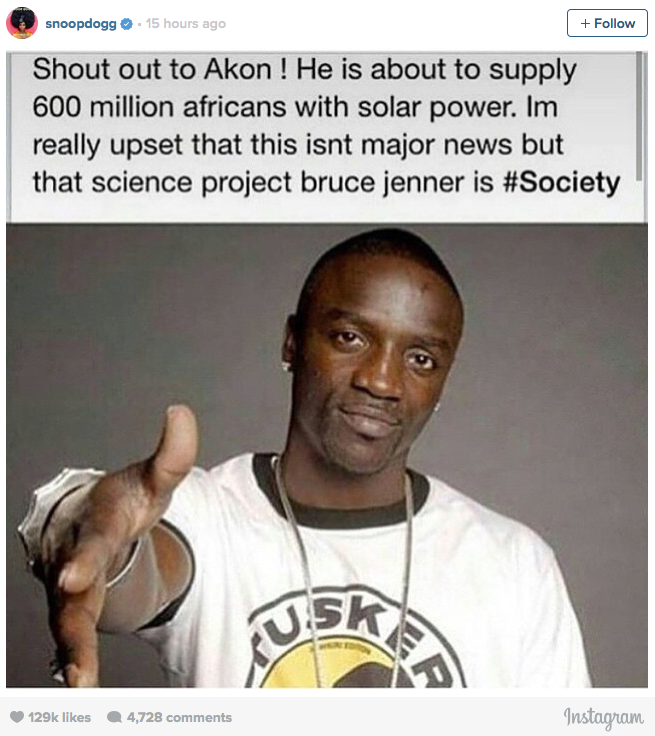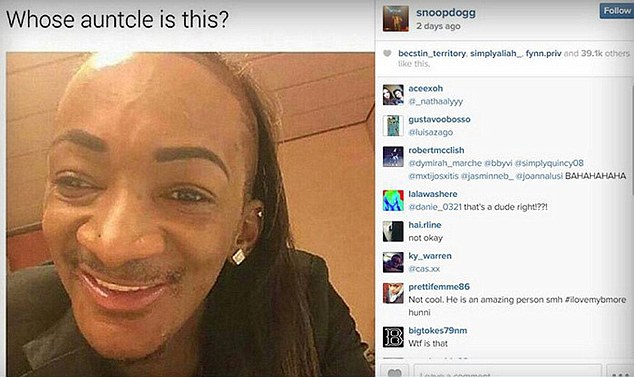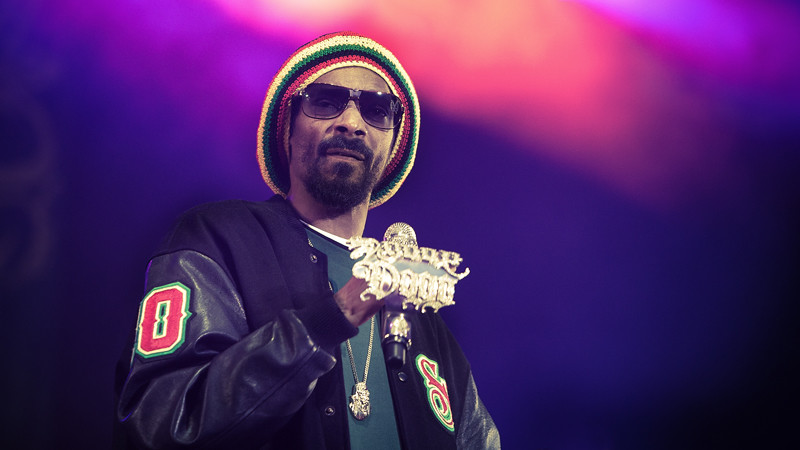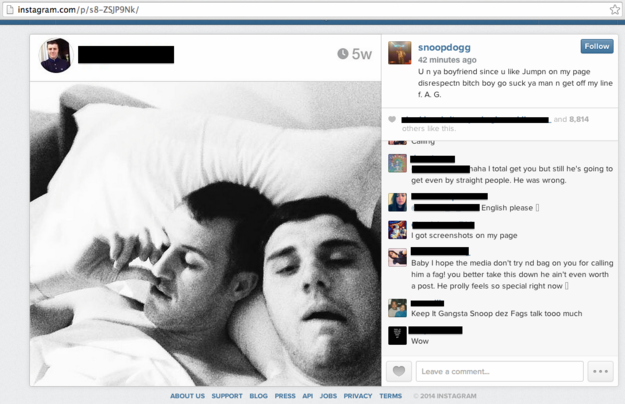Snoop Dogg and Napa Valley aren't terms that usually go together, but the pairing made sense this weekend when the rapper made an appearance at BottleRock. Gabe Meline, KQED Arts' music editor, was there and witnessed Snoop good-naturedly rolling sushi with chef Masaharu Morimoto (while making the requisite joint-rolling jokes) and "uniting 30,000 people in a singalong of love and positivity." This is how our culture thinks of Snoop, as a charming, funny and harmless hitmaker. But that reputation isn't entirely deserved.
The reception Caitlyn Jenner has received this week has been mostly positive, apart from some fringe people who just don't get it. Surely, Snoop, America's Rap Sweetheart, would offer his unconditional support and not say anything awful, right? Yeah, not so much.

Shocked? Well, you shouldn't be. This isn't the first time Snoop has said transphobic or homophobic things on social media. At the beginning of the year, Snoop posted a photo of Cortez Booze on his Instagram along with the question, "Who's auntcle is this?" Booze, who works at a care home in Maryland, was then subjected to an onslaught of abuse from Snoop fans. One Instagram user commented: "That shemale ain't gone win. U get wat u get if u choose to dress how u dress. Consequences for your choices so use some common sense."

A few months before that, Snoop posted a photo of two men in bed with the following caption: "U n ya boyfriend since u like Jumpin on my page disrespectn bitch boy go f*ck ya man n get off my line f.A.G." A fan commented: "Keep it Gangsta Snoop dez F*gs talk tooo much."



